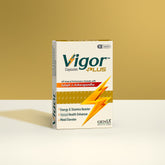Health Benefits of Collagen
Although collagen is the most prevalent protein in the human body, numerous individuals are unaware of its advantages. It is present in bones, muscles, tendons, skin, the digestive system, and blood vessels. Collagen provides elasticity to the skin and maintains the integrity of our joints. Collagen is described as the 'glue' that binds our bodies together.
What are the primary health advantages of collagen?
Collagen offers numerous health benefits that extend beyond mere aesthetic improvements. It performs the following functions:
Enhances and fortifies your hair, skin, teeth, and nails - The appearance of wrinkles, sagging skin, stretch marks, and cellulite may all stem from diminished collagen levels. By increasing your collagen intake, your skin can appear more firm and smooth.
Aids in the repair of leaky gut - A leaky gut allows toxins to infiltrate your digestive system and affect your overall health negatively. Collagen can assist in sealing your intestines and remedying leaky gut. If you experience any form of inflammatory bowel disease, collagen may support your digestive health.
Reduces or prevents joint pain and serves as an anti-inflammatory - Collagen operates similarly to the oil in a car engine: it facilitates the smooth movement of ligaments, tendons, and joints. A decrease in collagen can result in swollen, stiff, and painful joints. Research from the University of Illinois College of Medicine at Chicago indicates that collagen can help alleviate osteoarthritis pain.
Increases your metabolism and muscle mass - The amino acid glycine, which is present in collagen, assists in converting glucose into energy and promotes the development of lean muscle. An increase in lean muscle leads to a quicker metabolism, as muscle tissue burns more calories than fat. The inclusion of vitamin C alongside collagen enhances this process.
Helps support your liver and detox systems - Glycine plays a protective role for your liver against toxins and can aid in the repair of any liver damage.
Protects your heart and cardiovascular health - Proline, another element of collagen, may assist in repairing arteries and eliminating fat deposits from them. It has also been demonstrated to lower blood pressure.
How can you enhance your collagen intake?
You can incorporate collagen into your diet by consuming foods that are rich in it. The primary sources of collagen in your meals are likely to be protein-rich foods such as beef, chicken, fish, and eggshell membranes. Bone broth serves as an excellent method to include collagen in your diet.
Additionally, you may opt for a collagen supplement available in either powder or capsule form; numerous options are available in the market. The powder easily dissolves in tea, soups, smoothies, or even in baked goods.
Collagen can contribute to improved health, so ensure that you are obtaining an adequate amount to enjoy its benefits.






